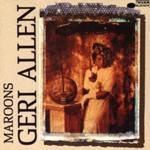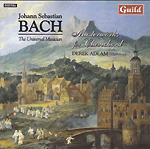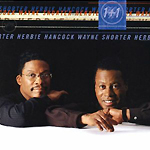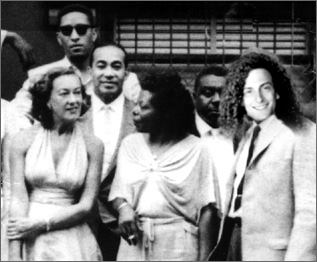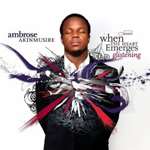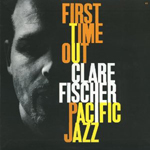Reading Ethan Iverson's long, detailed interview (does he do any other kind?) with saxophonist-composer-arranger-author Bill Kirchner got me thinking about the valuable things I got out of the arranging class I took with Kirchner, which in turn got me thinking about all the myriad lessons I've learned from many teachers/players/friends over the years, and BOOM! A new blog feature idea was born.
So I hereby inaugurate a new semi-regular gig in which I'll talk about some lessons I've learned from a variety of people—some of whom I studied with directly, some I shared the bandstand with, some I hassled for a few minutes in a club, and probably even some who died before I was born. Partly I want to do this to pay tribute to these people and give credit where it's due, but also I think it'll be a good way of thinking about my own development, how I got here (wherever "here" is), and maybe reminding myself of advice I may have forgotten, and which might be worth a second look.
So I'll go with Bill first since he indirectly gave me the idea.
Lesson #1: There Is Some Very Happening Music Out There You Don't Know About
It is shocking to me to realize, but there was a time I didn't know who Jimmy Giuffre was. He was just one of the musicians and writers whose records later became touchstones in my development which I was introduced to in Bill's class. I heard Jimmy Giuffre, Denny Zeitlin, Johnny Mandel (Bill played us a version of "The Song is You" which felt like the musical equivalent of falling in love with a beautiful woman who then punches you in the brain), Bill Holman, Bill Russo, Stravinsky's Ebony Concerto, and many others for the first time, and I remember he really got us beyond "Wow, man" and into thinking about how they did what they did.
Lesson #2: You Write for the Band You Have
I believe the instrumentation of the students in one of my classes with Bill was something like trumpet, tenor, guitar, drums, and vocals—and we wrote for that group. Really challenging, but it resulted in some very unusual sonorities, and got me thinking about counterpoint in a way I might not have if we had a more conventional rhythm section. I'm not sure we pulled those charts off, exactly, but it was a worthwhile challenge and helped break us out of the idea that you needed x, y, and z to have a band. (He might dig The Holly Martins.) I’ve used this same approach when working with composition/arranging classes several times since then, and it always generates some really unexpected and interesting results.
Writing for the band you have also means writing to a particular player's strengths—as Bill said while looking over my would-be-magnum opus big band chart (see below): "Don't give Rich Perry a clarinet solo!"
Lesson #3: You Have to Put the Notes on the Paper
The final assignment in the second semester of Bill's class was a big band chart based on an original tune, to be read by a pickup band of outstanding readers and jazz players. I had written a (decidedly lightweight) big band chart for my previous year's class (with Mike Mossman), so I knew it was possible, even if it resulted in sleepless nights, cramped hands, and a few embarrassing copying errors—I didn't own a computer at the time (believe it or not, there actually was a time like this!) so Finale & Sibelius weren't an option. (I don't miss those days at all.)
My first-semester septet project had been well-received, and several teachers had said they were looking forward to hearing what I came up with next. I was full of big ideas based on all the heavy theory classes I'd been taking, and fell victim to the "Next Big Thing" trap—this chart was going to upend the paradigm, reinvent what a big band was capable of, etc. It was going to be a passacaglia, based on a theme from a Purcell opera, and incorporate just about every badass technique I could imagine (short of resembling a conventional big band chart in any way). There probably were some interesting ideas in there—I put hours and hours into sketching and planning, getting 8 bars together here, 4 bars there—but somehow the closer the deadline got, the further from completion the chart looked. Bill became increasingly less convinced each time I showed him what I had, until 48 hours before the charts were due to be read, I realized there was no way in hell I would finish along the "plan" I had and undertook a drastic simplification, which I finished the score for about a half hour before the reading session began—with no time to copy the parts. Failure.
Bill was understandably bummed, and I felt like I'd crashed and burned in the one area I was getting some attention for—but he told me the most important lesson in composing (which I think he said he heard from someone else, maybe Bob Brookmeyer?)—it doesn't matter how big your ideas and plans are, you have to put the notes on the paper.
It took a while for the message to sink in, but eventually I got his point—the problem wasn't that I was lazy or untalented, I had just set my expectations too high ("Cmaj7—how dated is that?!"), so nothing I came up with was good enough to keep working on. You have to put the notes on the paper, not because they'll be perfect, but because once they're there you have something to work with. Or as Adam Benjamin wisely said (somewhere, I can't find it at the moment but I'm pretty sure I'm remembering it correctly because it made a big impression on me at the time), "don't try to write the next big thing, just write a thing, and then write another thing..."
Thanks to that lesson, any period of writing (music) for me always starts with trying to get a bunch of notes on the paper as early in the process as possible, since I know I can come back and decide what has potential later on. Unless you're Beethoven, it's much harder to edit and develop music in your head.
Thanks Bill! I.O.U. a passacaglia sometime! (Update, 2016: Here it is!)



